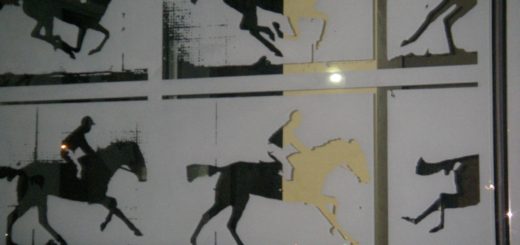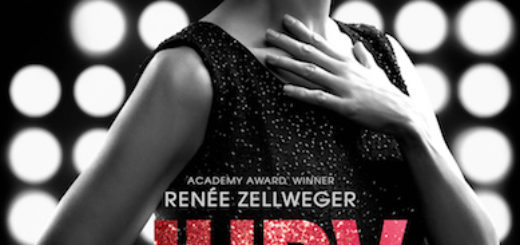The Soul of America
Perhaps you’ve noticed that we have just lived/are living through an intense moment in American history? A pandemic hovers over everything, as does our recent election, which has weaponized seemingly every part of reality—it’s even infused the sequel to Borat with relevance.
At an intense moment like this one, when so much seems to be a matter of life and death, it would be reassuring to hear someone who knows enough—about, say, American history—to say to us all something along the lines of, “History teaches us that this moment…is difficult, but not unique.”
As it happens, those exact words occur within the first few minutes of KD Davison’s The Soul of America spoken by the man who is more or less the documentary’s subject, one Jon Meacham. If you, like my wife, are a political junkie whose drug of choice is MSNBC, you likely already know Meacham, who offers almost daily punditry on the network, especially on Morning Joe. If you’re unfamiliar with Meacham, Soul provides a quick but thorough biography: a native of Chattanooga, Meacham was a young Republican, and I do mean young, campaigning for Ronald Reagan at the age of ten. Writing for The Chattanooga Times pushes Meacham leftward, and his work ethic pushes him upward, becoming the editor of Newsweek at the age of thirty. Despite his obvious talent, huge mind, and passion for work, Meacham appears approachable and friendly here, in and around his home in Nashville —we even get a glimpse of the very human side of Meacham, driving a pickup truck and smoking cigars.
There isn’t a terrible amount of time devoted to Meacham’s backstory, however, because while the documentary is somewhat about him, it’s mainly about his work and his message—it’s a film version, in a way, of one of the many books he has written, the book also called The Soul of America (2018.) The thesis of the book is that these are trying times, but America is in fact used to trying times, moments when our country is struggling with philosophical debates playing out in very real ways. If, as Meacham suggests, America has a soul, that soul has repeatedly had to decide whether or not to answer the call of what Lincoln called “the better angels of our nature”—and, at the risk of issuing a spoiler, the better angels have almost always prevailed.
The film plays out like a documentary version of the three-point thesis essay we all learned in high school (a model I still use from time to time) as each segment of the film focuses on specific times when America’s better and lesser angels have collided.
The film first tackles the Women’s Suffrage movement, a time summed up by another Meacham quote: “History,” he says, “is what happens when the powerful notice the powerless.” In this case, the powerless are American women, seeking the right to vote, as lead by Alice Paul. Paul organizes a suffrage demonstration on the day of Woodrow Wilson’s inauguration, and then schedules a constant presence of suffragettes posted at the gates of the White House—a way to ensure that the powerful can’t help but notice the powerless. We know how that ended—women can vote—but we also learn how much it cost (many suffragettes were arrested, jailed, and literally force-fed when they attempted a hunger strike.) We learn that while the better angels finally did prevail, they didn’t completely win on either side of the fight (Paul does not give a suffragette named Ida B. Wells any opportunity to join her movement, despite Wells representing a demographic that really deserves the right to vote.)
The second “wrestling match” the film discusses is one in which the lesser angels won—FDR’s decision to pursue Executive Order 9066 during World War II, leading to the internment of Japanese Americans. This segment is largely “guest-hosted” if you will, by the man who is possibly the most famous former internment camp resident, actor and internet celebrity George Takei, who tells his story with his usual eloquence and pathos. “When we give in to the worst of ourselves,” Takei explains, “we suppress, we marginalize.” Oddly, giving in to the worst turns out to have been a partial catalyst for America entering WWII—Meacham reveals that most Americans were in fact ambivalent about joining the war. Or at least they were as of December the sixth of 1941.
Round three of our national wrestling bout occurs not long after WWII; for Meacham, the next big struggle between our greater and lesser angels was led by Senator Joseph McCarthy and his HUAC hearings. Whether he genuinely hated and feared Communism or simply sought to make a political name for himself, McCarthy had a very real impact on a lot of lives; Meacham talks less about the lives he damaged—there is plenty of material about that—and more about the lives that served to oppose him, chiefly among them Denver Post editor Palmer Hoyt, an open critic of HUAC from its inception. Meacham summarizes the era as a time when, “then, as now, passion and conspiracy defeat reason,” going on to suggest that the Senator “would have loved Twitter”—and it’s hard to imagine that he wouldn’t have.
The fourth round discussed in the movie takes place in 1964, as Lyndon Johnson resolves to pass The Civil Rights Act. Much as Americans were ambivalent about entering WWII on December sixth of 1941, Johnson was ambivalent about the Civil Rights Act until November twenty-first of 1963; the next day, Johnson became President because his predecessor had been shot in the head, possibly because of his support for the Civil Rights Act. As such, Johnson made it his mission to place the Act into law “and not change one comma,” which he was just enough of an old-school, back-room politician to successfully do.
The Soul Of America leaves one optimistic; after all, in the four battles discussed, the Better Angels come out three and one. Per Meacham, the constant—that which is needed to ensure a win for the right side—is a triumvirate of skills. “Any good leader” he suggests, “has tremendous amounts of curiosity, humility, and empathy”—traits he unambiguously points out are absent in the current occupant of the White House. Present instead are a hybrid of populism and fear and a lack of attention to text, in favor of sound bites and flash—which hybrid first began to appear among a number of Americans after WWII, as news consumption became less print-based and television began to hold sway. When I started this review just after the online 2020 Nashville Film Festival, it was still October, and the election had not been held yet. In its wake we see that, yet again, the better angels triumphed. Unfortunately, we also saw the lesser angels rack up substantial numbers. When I started this review we hadn’t seen if the transition of power would even occur, or at least occur without a fight. Now we’ve seen the lesser angels start a fight in the Capitol that left five people dead. It’s frightening, it’s heart-sickening; it could be the clearest polarization we’ve seen yet between Americans aligning themselves with better or lesser angels—and, of course, both sides are convinced that their angels are the betters.
The film hits home even more now because I personally have lost two old, dear friends over the divisive and violent politics of the moment. I find myself simultaneously wanting to rebuild those friendships and not waver in my conviction that they are backing the proverbial wrong horse—perhaps the least right horse in American history. I’m not sure how to proceed and it’s dominating my thoughts. It considerably increases the volume on one of the last things Meacham says in the film, his description of a potential future political landscape: “Two armed camps staring at each other and neither side willing to blink.” Watching The Soul of America will mostly assure you that the right camp wins. May it win again.
The Soul of America is currently streaming on HBO Max






















